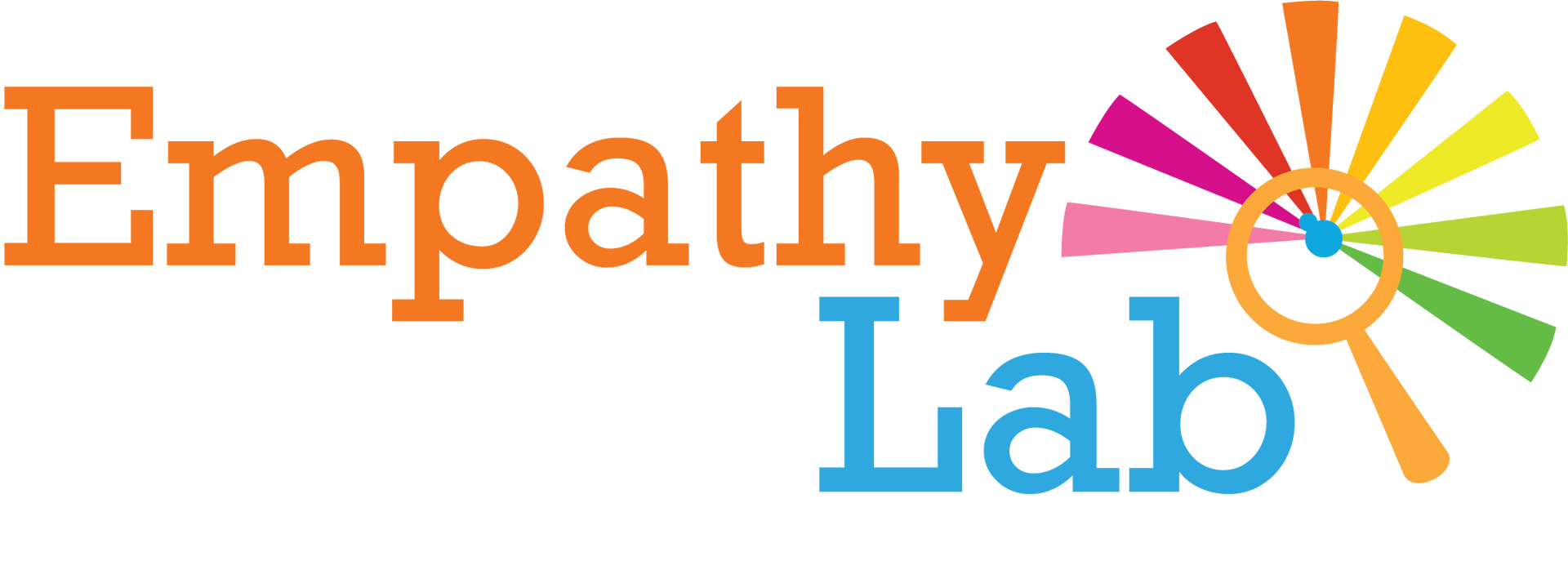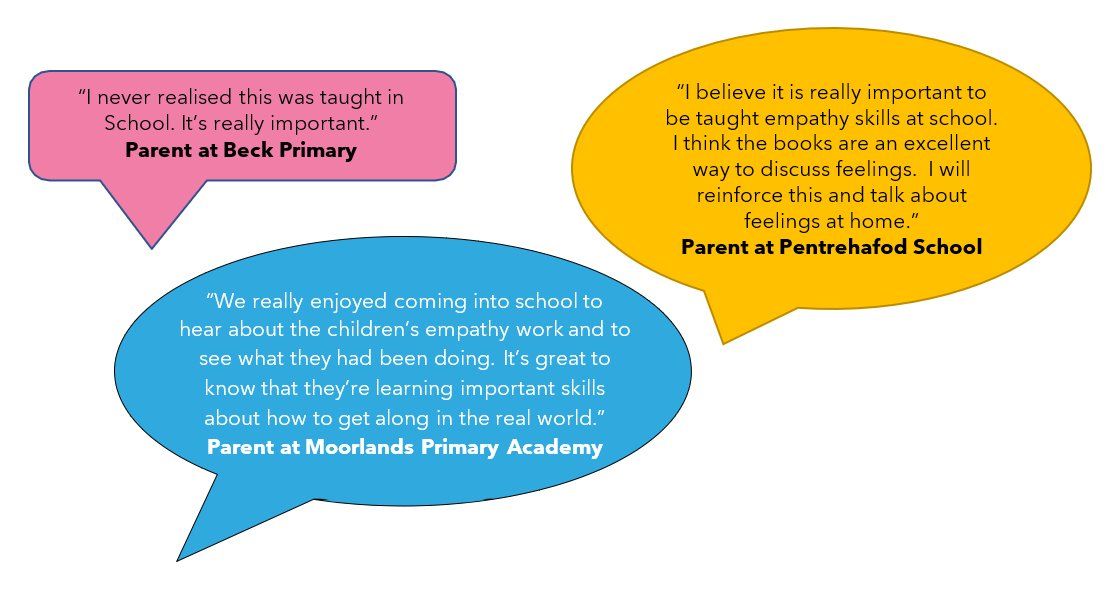PHASE 4 - PUPIL LEADERSHIP AND FAMILY ENGAGEMENT
"School improvement and effectiveness research consistently shows that parental engagement is one of the key factors in securing higher student achievement. Where schools build positive relationships with parents and work actively to embrace racial, religious, and ethnic and language differences, evidence of sustained school improvement can be found."
DfE, Review of best practice in parental engagement: practitioner’s summary
Family Engagement
Families and communities have a huge role to play in developing empathic children. Building positive relationships, overcoming differences, embracing diversity and building communities that support not only pupil achievement but also wellbeing and social justice lie at the heart of EmpathyLab’s targeted outcomes. That is why we place a strong emphasis on involving families and the wider community.
Hopefully the community around your school will have heard something of your focus on empathy already (through home-school communications and/or pupil advocacy). This phase focuses on getting them involved in deeper and more meaningful ways.
Target outcomes for this phase of your empathy work include that all parents, families and carers:
- have been told about what empathy is (and isn’t) and the importance of empathy skills to a child’s life chances
- have been made aware of how stories can build empathy and the school’s empathy focus
are getting involved in the school’s empathy work
Pupil Advocacy in Families
As pupils become more and more engaged with the empathy work you are doing in school, they can play an important role in getting their families involved.
This can happen both informally, through what they talk about and demonstrate at home, and formally, through planned opportunities to share the work they have been doing at school.
Encourage pupils to take a lead in engaging families as much as you can.
This also provides an excellent foundation for co-creating social action in and around the school and beyond in which children and families are identifying and sharing responsibility for the change they want to see.
“I used the family pack activities in the classroom before I shared them with parents.
The children could then explain what they had been doing in class and share the activities with their families.”
Year 2 teacher at Brynhyfryd, Swansea
Possible ways to engage with families
Every school has its own context and you will know your parent/carer community and the sorts of activities that might resonate with them. Here are a few suggestions: do we have any other piccies that could go here?
- Parent workshops – open sessions to learn more about empathy, Empathy Explorers/Activists and strategies for developing empathy through reading and book talk (*can share top tips and book-talking questions)
- Share recommended reading lists and booklists (in book bags, newsletters, school blogs, village/parish magazines)
- Use empathy postcards to send book recommendations out into the community (and receive them in return)
- Invite parents to attend empathy assemblies
- Host empathy storytimes with modelled book talk to which parents are invited (*can share top tips and book-talking questions)
- Invite parents to come and hear about the empathy books you been reading in class
- Invite parents to come and tell the class about their recommended empathy reads
- Co-create personal reading histories – parents come in to class to create a shared reading history with their child, with an empathy focus
- Give out parent questionnaires inviting their comments and views
- Run empathy reading cafés (see invitation template), sharing books on a theme (e.g. loneliness) or books that develop emotional vocabulary, with simple activities that families can do together e.g. matching emotions to pictures, sharing and labelling texts that explore feelings, etc.
- Share information about Bookspotters activities and make these open to all
- Make Empathy Awards/The Empathys a family outing (like the Oscars!) (see Kitbag resources)
- Display community #readforempathy pictures in school or on social media
- Host author events in which families are involved
Home Pack
There is a home pack that can be shared with parents. The activities come from the Family Activities packs released each year
as part of our Empathy Day programme. They are all accessible even without access to digital resources or books at home;
most can be done with just a piece of paper and a pen. These are not in any way designed to be used as ‘homework’ -
they are fun, creative ways to explore empathy together.
Parent Questionnaire
As part of the programme’s evaluation process (Phase 6), there is a parent questionnaire which gathers views on parents’ understanding of empathy, their children’s empathy skills etc. This provides a useful baseline at the start of the year and
can inform your outreach work.
Resources that can be shared with families
There are a number of resources that can be shared with families to support their understanding of empathy and encourage their participation. These are listed in the resources section below.
TOP TIPS:
- Let pupils lead family engagement work wherever possible
- Select activities that you think will most suit your family community


